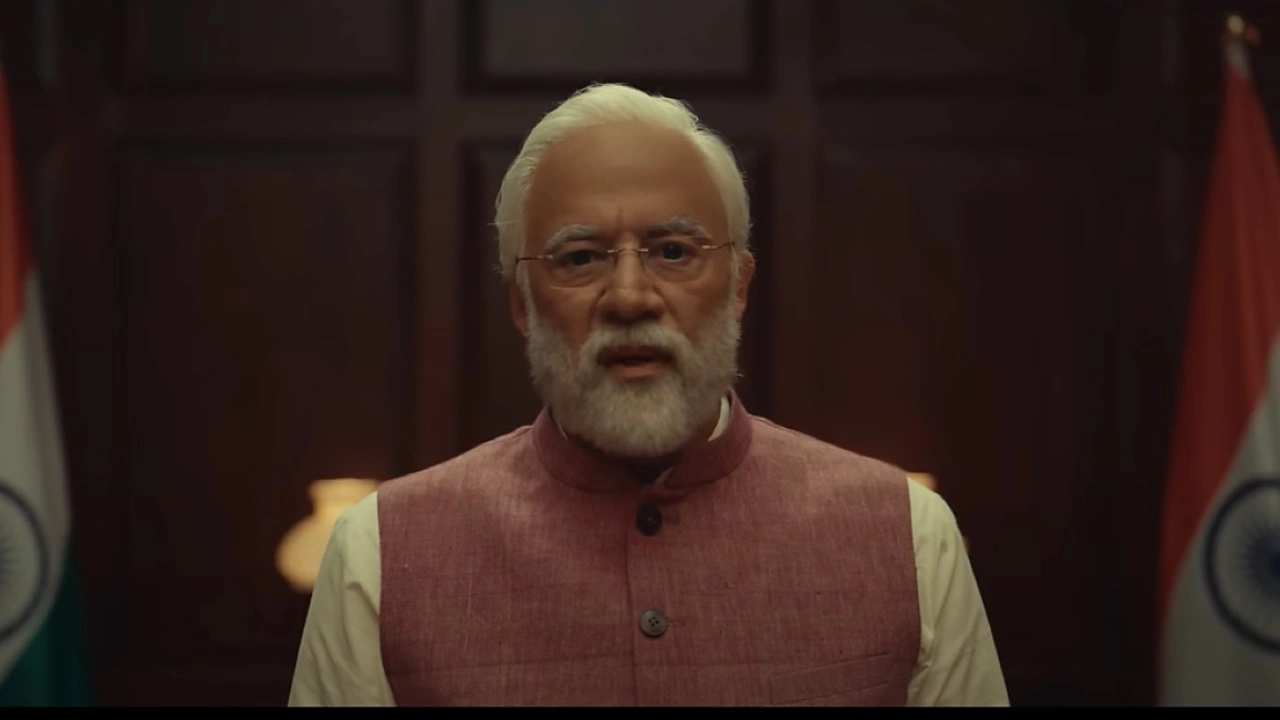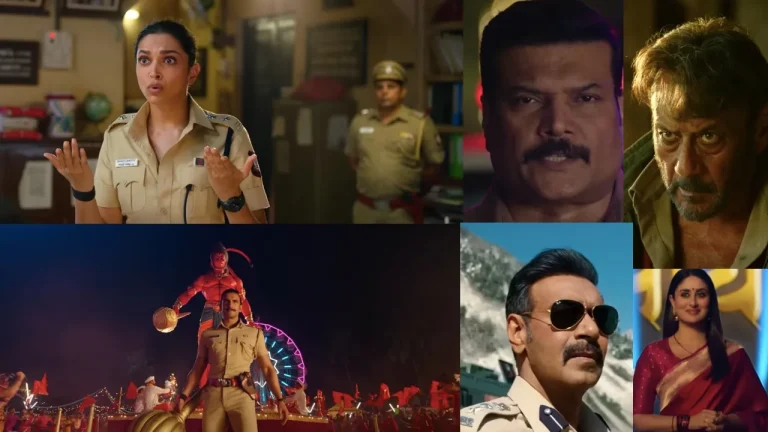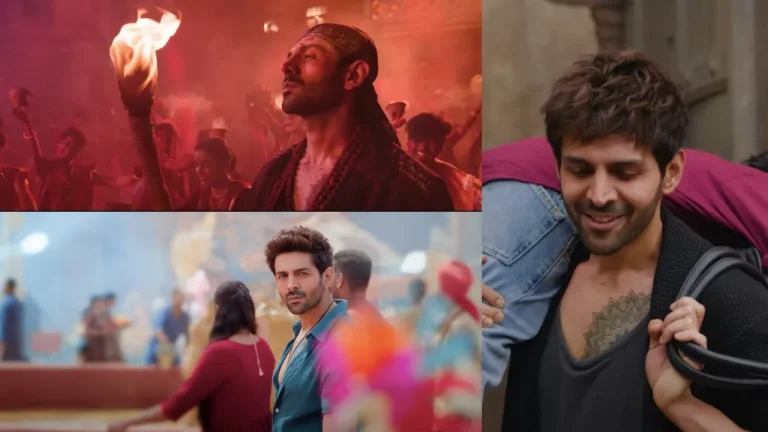Article 370 Movie is an upcoming Indian Hindi-language political thriller film directed by Aditya Suhas Jambhale and written by Aditya Dhar and Arjun Dhawan. Set in the aftermath of the 2016 Kashmir unrest, the film explores the contentious and complex history of the controversial Article 370, which granted special autonomous status to Jammu and Kashmir.
Led by a talented ensemble cast including Yami Gautam, Priyamani, and Iravati Harshe, “Article 370” promises to be a gripping and thought-provoking political drama that navigates the murky terrain of terrorism, conflict economies, and Indian constitutional law. By dramatizing the events leading up to the article’s abrogation in 2019, the film takes on the challenging task of representing diverse perspectives on this highly polarizing issue.
Plot Summary
In the wake of escalating violence and terrorist activity in Kashmir in 2016, the film introduces us to Zooni Haksar (Yami Gautam), a bright young field agent handpicked for a top-secret mission. Under the guidance of senior PMO official Rajeshwari Swaminathan (Priyamani), they set out on the seemingly impossible goal – dismantling Kashmir’s entrenched conflict economy and bringing an end to the vicious cycle of terrorism without spilling innocent blood.
Their audacious plan? Rolling back the decades-old constitutional provision, Article 370, which granted special autonomous status to Jammu and Kashmir. As Zooni and the PMO team navigate a complex web of political machinations, intelligence operations, and separatist forces, they grapple with the moral dilemmas and high stakes that come with upending the status quo.
With rising tensions, escalating crises, and personal risks at every turn, the film’s narrative builds towards the pivotal 2019 decision to revoke Article 370. By bringing to life the covert strategizing and backroom deals behind this historic constitutional move, “Article 370” offers a dramatized glimpse into one of the most consequential geopolitical developments of recent Indian history.
Critical Analysis
Story and Screenplay: The writers deserve praise for crafting a taut political thriller that deftly balances insight into complex constitutional issues with an accessible, emotionally gripping narrative. It avoids becoming overly didactic by centering the human experience amidst the high stakes political drama. While some plot points strain credulity, the layered screenplay keeps viewers invested and injects urgency into procedural details.
Directing & Cinematography: Director Aditya Jambhale demonstrates a sure hand in skillfully juggling scenes of frenetic action, verbal sparring between power players, and intimate human moments. Camera work puts us in the trenches of Kashmir’s indelible landscape while the handheld, documentary-like style builds tension and verisimilitude. Gorgeous vistas and stylized visual metaphors also enhance the film’s scope and resonant themes.

Acting: The ensemble delivers nuanced performances remarkably faithful to the ambiguities of the subject matter. Gautam capably anchors the film as a determined yet idealistic young agent coming of age amidst challenging realities. Priyamani radiates dignified authority as a top bureaucrat. The supporting cast infuses even smaller roles with humanity and moral complexity. This empathetic approach models thoughtful discourse on polarizing issues.
Music & Sound Design: The score evokes the region’s gorgeous folk traditions while pulsating, electronic textures ratchet up anxiety befitting a political thriller. Rich, layered sound design transports us to locations brimming with cultural specificity. Environmental noises also augment the precarity of operating within a conflict zone.
Technical Aspects: Everything from editing to set design is testament to the high technical caliber. VFX elements are seamlessly integrated to add scope and spectacle. Judicious archival footage enhances historical grounding. My sole critique is uneven pacing in the midsection, though the taut buildup and payoffs redeem the occasional dead spaces.
Historical & Political Context
Article 370 immerses us in tumultuous chapters of modern Indian and Kashmiri history that shaped the conditions leading to the article’s abrogation. From laying bare tangled colonial legacies to examining present-day sectarian tensions, the film prioritizes contextual understanding over reductive partisanship. It imbues politics with humanity, making complex policy decisions emotionally tangible through its impact on communities and individuals on the ground.
Accuracy & Representation
While dramatized for cinema, the film’s core historical events and constitutional processes adhere closely to facts. Authorial liberties with plot details serve the higher purpose of crafting an engaging, accessible fictional narrative rather than dogmatic propaganda. Most importantly, an even-handed approach humanizes all sides while recognizing individual nuances within rigid ideological positions. Representing diverse perspectives on the Kashmir issue with empathy and integrity is a notable achievement.
Social & Political Impact
Article 370’s even-handed tone and contextual richness make it more than a run-of-the-mill geopolitical thriller. In deftly navigating a contentious issue, the film models the qualities of inquiry and understanding desperately needed to bridge chasms of misinformation and reductionism plaguing our political landscape today. By centering ethics and humanity in policy decisions, it inspires reflection on reclaiming civic discourse from partisan camps.
Beyond commercial success, this film’s true value lies in its potential to reshape public consciousness. By immersing viewers in the invisible machinery of power and the lived consequences of high-level policy, Article 370 can not only inform and challenge preconceptions but galvanize greater civic engagement, accountability, and moral imagination.
Conclusion
Article 370 is more than just another political drama – it’s a gripping human story that doubles as an urgent intellectual and moral provocation. Its willingness to wade into controversy with sensitivity and wisdom is both brave and admirable. While not flawless, the film soars in its ambition to enrich collective consciousness.
Bold yet empathetic storytelling makes complex history feel present and personally relevant. Technical prowess complements layered characterizations. Most importantly, it transcends expected partisan bounds to model ethical conduct and nuanced representations of even the most polarizing topics. Article 370 excels as a beacon of conscientious cinematic art with the potential to positively impact minds and hearts.





